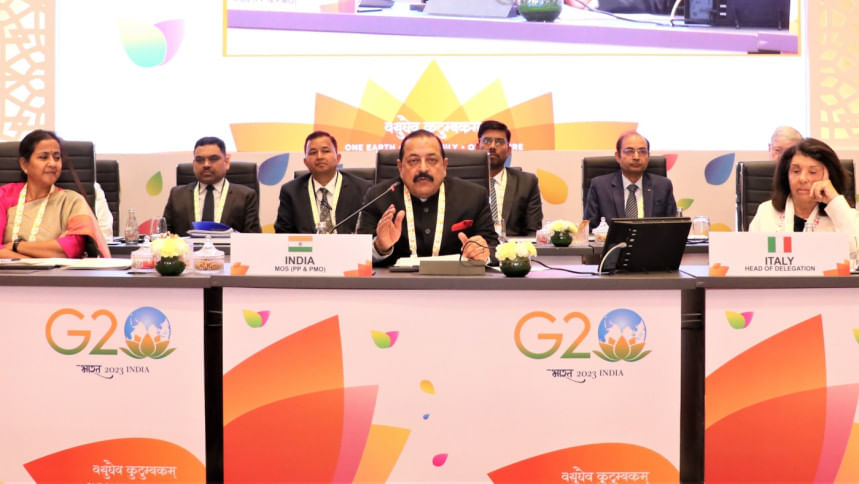
India today called upon G-20 countries to adopt a multilateral action for faster extradition of fugitive economic offenders and recovery of assets both on the domestic front as well as abroad.
Chairing the first Anti-Corruption working group meeting of G20 nations held in Gurugram, Haryana, Minister of State (Independent Charge) for Personnel Jitendra Singh said in his inaugural address that economic offences have been a problem faced by many, especially when the offenders flee from the jurisdiction of the country, reports our New Delhi correspondent.
He said that for better coordination, streamlining of the judicial processes and timely disposal of cases, there is a requirement for multilateral action rather than bilateral coordination which proves to be more complex and presents obstacles in making progress on cases related to fugitive economic offenders and recovery of related assets.
India, according to Singh, has put in place a special law in this regard, in the form of the Fugitive Economic Offenders Act, 2018, the term wherein ‘fugitive economic offender’ (“FEO”) is defined as an individual against whom a warrant of arrest in relation to scheduled offence has been issued by any court in India and who has left the country to avoid criminal prosecution or the FEO abroad refuses to return to face criminal prosecution.
Singh also said the Enforcement Directorate of India has transferred assets worth about USD 180 billion to public sector banks that suffered losses to the tune of around USD 272 billion due to frauds committed by high-net-worth individuals.
The minister said there have been numerous instances of financial or banking frauds that were investigated under relevant statutory provisions that involved high net worth individuals where the proceeds of crime involved were more than USD one billion.










